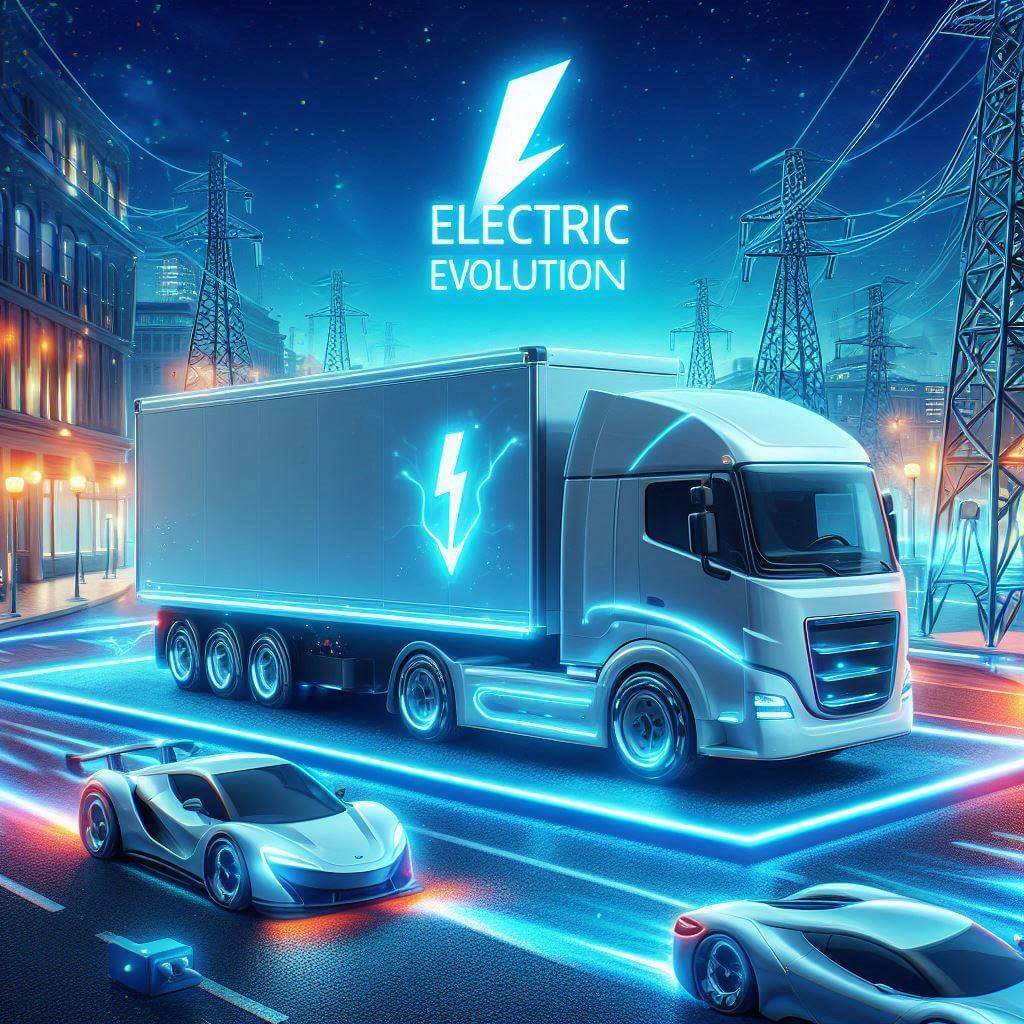Electric Evolution: How e-Trucks are Reshaping the Freight Industry

In recent years, the freight industry has been undergoing a transformative revolution, driven by the increasing demand for sustainability, efficiency, and technological innovation. At the forefront of this evolution are electric trucks, commonly referred to as e-trucks. These vehicles are not merely an alternative to traditional diesel trucks; they represent a paradigm shift that promises to reshape the future of logistics and supply chain operations globally. This article delves into the various facets of this electric evolution, examining how e-trucks are redefining the freight landscape, their benefits and challenges, and their prospective impact on the environment and the economy.
Contents
The Rise of Electric Trucks
The emergence of electric trucks is not an isolated phenomenon; it is part of a broader shift towards electrification and decarbonization across all sectors. With international regulations tightening and public opinion increasingly favoring sustainable practices, the freight industry has found itself at a critical juncture. Traditional diesel-powered trucks are not only expensive to operate but also come under fire for their large carbon footprints and harmful emissions. E-trucks, which utilize electric powertrains, promise to alleviate many of these issues by offering cleaner, quieter, and more efficient alternatives.
A Technological Breakthrough
The development of e-truck technology has been driven by advancements in battery technology, electric drivetrains, and regenerative braking systems. Modern lithium-ion batteries now offer significant improvements in energy density and charging speed, making electric trucks more viable over longer distances. Moreover, companies are continually investing in research and development to create lighter materials, more efficient motors, and faster-charging solutions, further enhancing the feasibility of electric freight transport.
The Players in the Market
Several major automotive manufacturers and startups have entered the e-truck market, each bringing unique innovations and solutions. Companies like Tesla, Rivian, and Freightliner are at the forefront, with varying degrees of market penetration and technological offerings. For instance, Tesla’s Semi promises a 500-mile range with rapid charging capabilities, while Freightliner’s eCascadia aims to provide zero-emission solutions for heavier loads. The variety in offerings allows for a range of businesses—from local courier companies to large freight carriers—to evaluate and adopt e-trucks based on their specific operational needs.
Benefits of Electric Trucks
E-trucks offer a myriad of advantages over their conventional counterparts, making them an attractive option for the future of freight transport.
Environmental Impact
One of the most significant benefits of e-trucks is their potential to drastically reduce greenhouse gas emissions. According to the Environmental Protection Agency (EPA), heavy-duty trucks contribute to nearly 29% of greenhouse gas emissions from the transportation sector. By shifting to electric power, the freight industry can make significant strides towards reducing its carbon footprint, thereby mitigating climate change effects.
Cost Efficiency
Initially, the upfront cost of electric trucks may be higher than traditional trucks, but operational savings can be substantial over time. Electric vehicles typically have lower maintenance costs due to fewer moving parts and less wear and tear. Additionally, the cost of electricity is generally lower than diesel fuel, translating to savings on fuel costs. As battery technology continues to advance, the price of e-trucks will likely decrease, making them more accessible to carriers of all sizes.
Noise Reduction
Electric trucks operate much more quietly than conventional trucks, resulting in noise pollution reduction. This is particularly beneficial in urban areas where freight operations are often conducted during nighttime hours. Quieter trucks create a more pleasant environment for residents and contribute to improved quality of life in densely populated areas.
Improved Driver Comfort and Safety
E-trucks often come equipped with advanced technological features, including enhanced driver assistance systems (ADAS) and improved ergonomics. These innovations not only increase operational efficiency but also enhance safety for drivers and others on the road. Features like automatic braking, lane-keeping assistance, and telematics systems help to minimize accidents and ensure safer freight operations.
Challenges of Electric Trucks
Despite their numerous advantages, the widespread adoption of electric trucks is not without challenges.
Charging Infrastructure
A significant barrier to the widespread use of e-trucks is the current lack of adequate charging infrastructure. The ability to charge vehicles quickly and conveniently is critical to the practicality of e-trucks, especially for long-haul operations. Investments in a robust, widespread charging network are essential to ensure that fleets can efficiently operate without downtime due to charging needs.
Range Limitations
While technology is improving, concerns about range limitations for electric trucks remain. Long-haul trucking operations, which typically require traveling hundreds of miles in a single haul, may find current electric truck ranges insufficient. However, with advancements in battery technology and the maturation of charging infrastructure, many experts believe that range anxiety will diminish over time.
Capital Investment
The transition to electric trucks demands a significant upfront investment from freight companies. Fleet operators must consider the costs associated with purchasing electric trucks and developing the necessary infrastructure to support their operation. Although these costs can be offset by long-term savings, the initial outlay can be a deterrent for many businesses, particularly smaller companies.
Future Implications and Trends
The future of e-trucks promises exciting developments and transformative changes to the freight industry. As technology continues to improve, electric trucks are likely to become an increasingly common sight on roads across the globe. The development of autonomous electric trucks is another fascinating trend—combining electric power with autonomous technology could reduce labor costs, enhance safety, and allow for more efficient logistics systems.
Furthermore, sustainability and environmental concerns are expected to drive policy changes and stimulate government incentives for electrification in the freight industry. Such measures can bolster the necessary charging infrastructure and make e-trucks more accessible for fleets of all sizes.
The transition from traditional diesel-powered trucks to electric trucks represents a pivotal moment in the freight industry. As e-trucks become a larger part of the supply chain landscape, their impact on environmental sustainability, operational efficiency, and technological advancement cannot be overstated. Though challenges remain, ongoing innovations in technology and infrastructure are expected to overcome these hurdles. As e-trucks continue to gain traction, the freight industry stands poised to enter a new, electrified era, fundamentally reshaping logistics and transportation as we know them. The electric evolution is indeed here—driving us towards a cleaner, smarter, and more efficient future.


